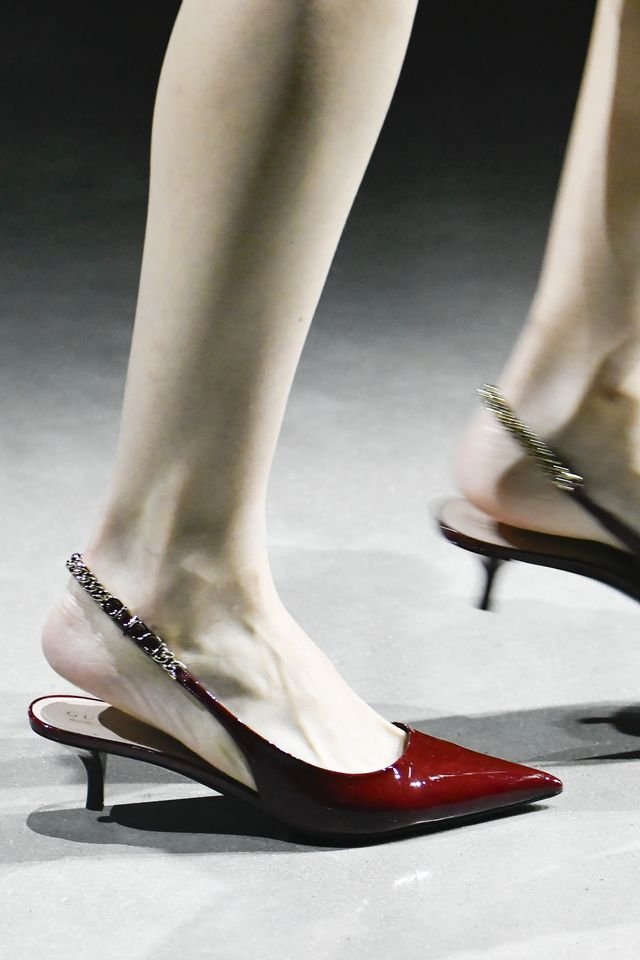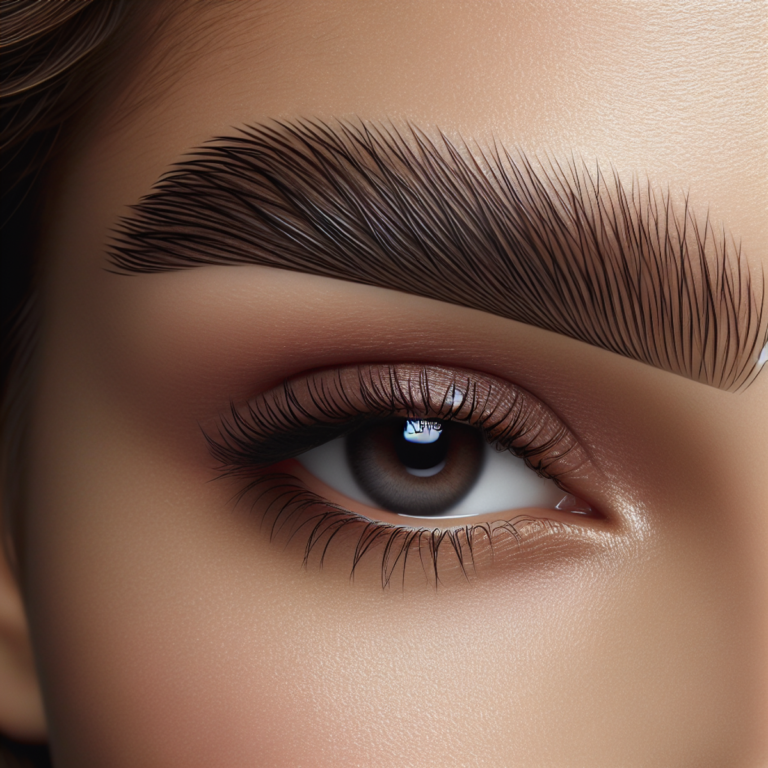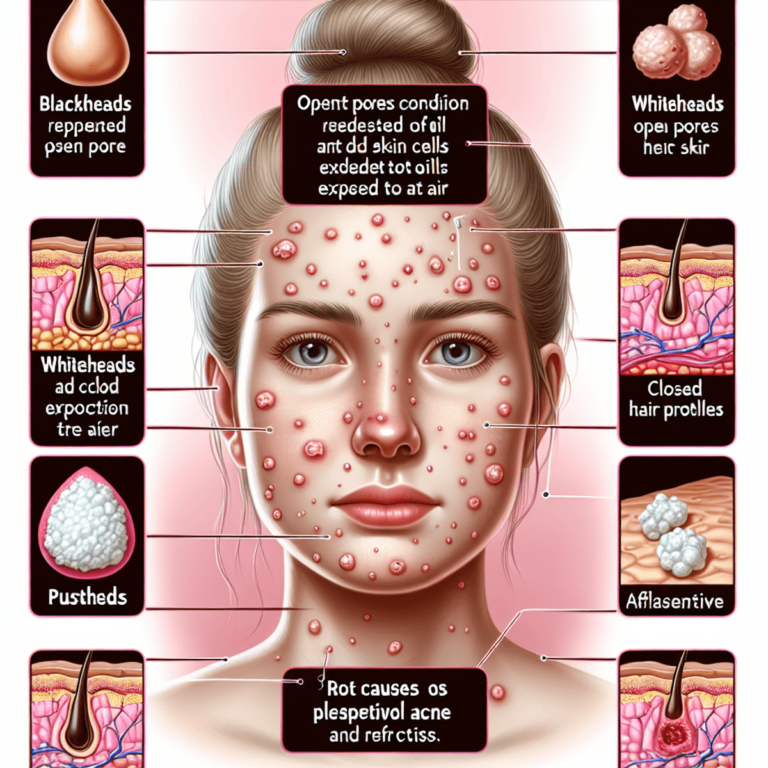home remedies to clear acne

Introduction
Acne is a common skin condition that affects many people, especially during their teenage years and early adulthood. It’s important to find effective solutions because acne can cause physical discomfort and emotional distress.
We have gathered a list of the most effective home remedies and lifestyle changes you can use to clear your skin and prevent future breakouts. Explore how to clear pimples naturally, get rid of breakouts, remove pimples naturally and permanently, and eliminate back pimples or small bumps on your face.
Understanding Acne
Acne is a common skin condition characterized by the presence of various types of blemishes, including pimples, blackheads, and cysts. It primarily affects adolescents and young adults, but can occur at any age. The prevalence of acne underscores the importance of understanding its causes and finding effective treatment methods.
Common Causes of Acne
- Excess Oil Production: Sebaceous glands produce sebum, an oily substance that can clog pores when produced in excess, leading to breakouts.
- Bacteria: The skin hosts Cutibacterium acnes bacteria, which can multiply within clogged pores, triggering inflammation and acne formation.
- Inflammation: When pores become blocked, the body’s immune response may cause redness and swelling, further aggravating the condition.
- Hormonal Changes: Fluctuations in hormones, particularly during puberty, menstruation, or pregnancy, can increase oil production and contribute to acne development.
Understanding these factors can aid in determining how to get rid of little bumps on your face effectively. Each individual may experience a combination of these causes leading to their specific acne type. Identifying personal triggers is crucial for managing outbreaks and achieving clearer skin.
Benefits of Home Remedies for Acne
Choosing home remedies for acne can offer several distinct advantages:
- Natural Treatments: Many homemade remedies use ingredients that are natural and less likely to cause irritation. This appeals to those seeking a gentler approach to skincare.
- Cost-Effective Solutions: Home remedies often utilize common household items, making them affordable alternatives to expensive pharmaceutical treatments.
- Minimal Side Effects: Unlike some commercial products that may contain harsh chemicals, natural remedies generally have fewer side effects. This makes them suitable for individuals with sensitive skin.
Common ingredients in these home remedies include:
- Tea Tree Oil: Known for its antibacterial properties, it helps combat acne-causing bacteria effectively.
- Apple Cider Vinegar (ACV): With its citric acid content, ACV can help balance skin pH and reduce the presence of harmful bacteria.
- Honey: Its natural antibacterial qualities make honey a popular choice for DIY masks.
These homemade remedies not only target existing blemishes but can also assist in preventing future breakouts. For those looking for ways to remove blackheads and whiteheads permanently at home, these natural treatments can serve as a practical solution.
Effective Home Remedies to Clear Acne
1. Tea Tree Oil
Tea tree oil is a popular choice among those seeking effective home remedies for acne. Its effectiveness lies in its natural antibacterial and anti-inflammatory properties, making it a powerful ally against acne-causing bacteria. Here’s how tea tree oil works:
Antibacterial Action
Tea tree oil contains compounds such as terpinen-4-ol, which have been shown to kill specific strains of bacteria that contribute to acne. By targeting these bacteria, tea tree oil helps prevent the formation of new breakouts.
Anti-inflammatory Effects
Inflammation plays a critical role in acne development. The anti-inflammatory properties of tea tree oil can help reduce redness and swelling associated with pimples, promoting faster healing.
When using tea tree oil as an acne treatment, proper application is essential to maximize benefits while minimizing skin irritation. Here are some recommended methods:
- Dilution: Pure tea tree oil can be too potent for direct application on the skin. Dilute it with a carrier oil such as jojoba or coconut oil in a ratio of 1:9 (one part tea tree oil to nine parts carrier oil). This reduces the likelihood of irritation while retaining its efficacy.
- Spot Treatment: After dilution, apply the mixture directly onto blemishes using a cotton swab or clean fingertip. This targeted approach ensures that the active ingredients work effectively on problem areas without affecting surrounding skin.
- Facial Mask: For broader application, consider adding a few drops of diluted tea tree oil to your regular face mask or DIY masks containing ingredients like clay or honey. This can enhance the mask’s overall effectiveness against acne.
- Frequency of Use: Start with applying tea tree oil once daily to observe how your skin reacts before gradually increasing usage if necessary. Monitor for any signs of irritation or excessive dryness.
Utilizing tea tree oil as part of your skincare routine can provide significant benefits in managing and clearing acne. Remember, consistency is key when incorporating this remedy into your regimen.
2. Apple Cider Vinegar (ACV)
Apple cider vinegar is a popular choice among home remedies for acne due to its potent antibacterial properties. The citric acid content in ACV plays a crucial role in combating acne-causing bacteria, effectively reducing the likelihood of breakouts. It works by balancing the skin’s pH levels and exfoliating dead skin cells, which can clog pores.
When using ACV as an acne treatment, consider the following precautions:
- Dilution: Always dilute apple cider vinegar with water before applying it to your skin. A common ratio is one part ACV to three parts water. This helps prevent irritation.
- Patch Testing: Conduct a patch test on a small area of your skin to check for any allergic reactions or sensitivity before full application.
- Frequency: Limit use to a few times a week to avoid over-drying the skin.
Incorporating apple cider vinegar into your skincare routine offers an accessible method to help manage acne effectively alongside other treatments, such as tea tree oil.
3. Zinc Supplements
Zinc is a trace mineral that plays a vital role in skin health and has gained attention as one of the effective home remedies for acne. Research indicates that zinc supplements can help reduce inflammatory lesions associated with acne, providing a potential alternative for those seeking natural treatments.
How Zinc Works
Zinc contributes to the regulation of oil production in the skin. It also possesses anti-inflammatory properties, which can help minimize redness and swelling in existing acne.
Evidence Supporting Effectiveness
Several studies have shown that individuals with acne often have lower levels of zinc compared to those without the condition. Supplementation may improve symptoms, particularly in cases of inflammatory acne.
Dosage Recommendations
It is generally recommended to take between 30 mg to 40 mg of zinc per day for acne treatment. Exceeding this dosage can lead to adverse effects, including nausea and gastrointestinal discomfort.
Safety Considerations
Before starting any supplement regimen, it is wise to consult with a healthcare professional. Monitoring for any potential side effects is crucial to ensure safe use.
Integrating zinc supplements into your acne treatment approach can enhance your skincare routine while exploring various home remedies to clear acne effectively.
4. Honey and Cinnamon Mask
The combination of honey and cinnamon creates a powerful acne treatment mask due to their strong antibacterial properties. Honey is known for its ability to retain moisture while fighting bacteria, making it a gentle yet effective option for acne-prone skin. Cinnamon, on the other hand, enhances blood circulation and helps reduce inflammation, contributing to clearer skin.
Preparation Method
- Ingredients Needed:
- 2 tablespoons of raw honey
- 1 teaspoon of ground cinnamon
- Instructions:
- In a small bowl, mix the honey and cinnamon until you achieve a smooth paste.
- Before applying the mask, cleanse your face thoroughly to remove any dirt or oils.
- Apply the mixture directly onto the affected areas or all over your face if desired.
- Leave the mask on for about 10-15 minutes.
- Rinse off with warm water, gently patting your skin dry.
This DIY mask can be used 1-2 times a week to help reduce acne breakouts effectively. While many find this remedy beneficial in their home remedies to clear acne, always perform a patch test beforehand to avoid any adverse reactions. Incorporating this mask into your skincare routine may provide an alternative approach for those seeking natural acne treatment options like tea tree oil or other remedies.
5. Green Tea Application
Green tea is a powerful ally in the fight against acne, thanks to its rich composition of antioxidants and anti-inflammatory properties. When applied topically, it can offer several benefits:
- Reduces Inflammation: The polyphenols in green tea help calm irritated skin, reducing redness and swelling often associated with acne.
- Controls Excess Oil Production: By regulating sebum production, green tea can prevent clogged pores, a common trigger for breakouts.
- Antibacterial Effects: It contains compounds that combat acne-causing bacteria, contributing to clearer skin.
Application Method:
- Brew a cup of green tea and let it cool.
- Soak a cotton ball in the cooled tea.
- Apply the cotton ball directly to the affected areas or use a spray bottle for an all-over application.
- Allow it to sit for 10–15 minutes before rinsing with water.
Integrating this simple remedy into your skincare routine can enhance your approach to managing acne effectively.
6. Aloe Vera Gel
Aloe vera is a popular choice among home remedies for acne due to its soothing and anti-inflammatory properties. This natural remedy can effectively calm irritated skin and reduce the occurrence of acne flare-ups. Here’s how it works:
- Soothing Effect: Aloe vera gel provides immediate relief from redness and irritation, making it suitable for sensitive skin types.
- Anti-Inflammatory Properties: The gel contains compounds like salicylic acid that help reduce inflammation, which is often a significant factor in acne development.
- Hydration: Unlike some drying treatments, aloe vera hydrates the skin without clogging pores, promoting a balanced complexion.
For best results, apply fresh aloe vera gel directly to the affected areas. You can leave it on as an overnight treatment or rinse it off after about 30 minutes. Incorporating aloe vera into your skincare routine enhances your acne treatment regimen, especially when combined with other effective ingredients like tea tree oil.
7. Witch Hazel
Witch hazel is a popular ingredient in many home remedies for acne due to its potential benefits. Known primarily for its astringent properties, witch hazel can help control excess oiliness on the skin, a key factor contributing to acne development. Furthermore, its benefits and uses extend beyond acne treatment.
Potential Benefits of Witch Hazel for Acne
- Astringent Effect: Witch hazel tightens skin and reduces the appearance of pores, possibly decreasing the likelihood of clogged pores.
- Antimicrobial Properties: It may also possess mild antimicrobial effects, which can assist in combating acne-causing bacteria.
While scientific research specifically supporting witch hazel’s effectiveness as an acne treatment is limited, anecdotal evidence suggests that many individuals find it beneficial when incorporated into their skincare routines.
When using witch hazel for acne treatment, consider applying it with a cotton ball directly to affected areas after cleansing. This method ensures targeted application without excessive product use. Integrating witch hazel alongside other remedies like tea tree oil and aloe vera gel may enhance overall results in your journey through home remedies to clear acne. Additionally, it’s worth noting that witch hazel’s astringent properties can also be beneficial in treating conditions like Fordyce spots, further showcasing its versatility as a natural remedy.
Lifestyle Changes to Support Acne Management
1. Skincare Routine
Maintaining a consistent skincare routine is essential for managing acne effectively. Tailoring your regimen specifically for oily or acne-prone skin types can make a significant difference in your skin’s health. Here are some key components to consider:
- Gentle Cleansing: Cleanse your face twice daily with a gentle, non-comedogenic cleanser. This helps remove excess oil, dirt, and impurities without stripping your skin of its natural moisture.
- Exfoliation: Incorporate exfoliation into your routine 1-2 times a week. Using chemical exfoliants like salicylic or glycolic acid can help prevent clogged pores and promote cell turnover.
- Moisturizing: Even oily skin requires hydration. Opt for lightweight, oil-free moisturizers that won’t clog your pores while keeping your skin hydrated.
- Sun Protection: Apply a broad-spectrum sunscreen daily. UV exposure can exacerbate acne and lead to post-inflammatory hyperpigmentation.
- Avoid Harsh Products: Steer clear of products containing alcohol or strong fragrances which can irritate the skin and worsen acne.
A tailored skincare routine not only addresses current breakouts but also prevents future ones by maintaining skin balance. Each component plays a role in supporting overall skin health and reducing inflammation.
Implementing these lifestyle changes for acne management alongside effective home remedies can enhance your results. Staying consistent with your routine can yield noticeable improvements over time. Tracking how your skin reacts to different products helps you find the right balance, making adjustments as needed to suit your unique skin type and concerns.
2. Dietary Considerations
In addition to topical treatments, making certain lifestyle modifications can also play a significant role in managing breakouts effectively. Here are some key areas to focus on:
- High Glycemic Index Foods: Diet choices like sugary snacks, white bread, and processed foods can spike insulin levels. Elevated insulin may lead to increased oil production and hormonal imbalances, resulting in acne flare-ups.
- Whole Grains: Opting for whole grains instead of refined carbohydrates can help stabilize blood sugar levels. Examples include brown rice, quinoa, and whole grain bread.
- Fruits and Vegetables: Incorporate a variety of colorful fruits and vegetables rich in antioxidants. These can combat inflammation and support skin health.
- Hydration: Adequate water intake is essential. Staying hydrated helps maintain skin elasticity and flushes out toxins.
Adopting these dietary considerations for acne management can significantly contribute to clearer skin alongside a consistent skincare routine for acne-prone skin.
3. Stress Management Techniques
Stress can significantly impact your skin, often leading to increased acne flare-ups. High stress levels may trigger inflammation and excess oil production, making existing blemishes worse. It’s essential to incorporate stress management techniques into your daily life to maintain clear skin. Here are some effective methods to consider:
- Yoga: This practice encourages relaxation while promoting blood circulation and reducing tension. Regular yoga sessions can help balance hormones and reduce stress.
- Meditation: Taking time each day for mindfulness or meditation can calm your mind, lowering cortisol levels that contribute to breakouts. Even a few minutes can make a difference.
- Physical Activity: Engaging in regular exercise not only relieves stress but also boosts mood through the release of endorphins. Aim for at least 30 minutes of moderate activity most days.
These lifestyle changes for acne management support a balanced skincare routine for acne-prone skin, creating a holistic approach to clearer skin.
Quick Fixes for Pimples
When faced with unexpected breakouts, quick fixes can provide immediate relief. Here are some effective overnight treatments to help you achieve clearer skin fast.
1. Overnight Treatments
1.1 Tea Tree Oil Spot Treatment
This natural antibacterial agent is a popular choice for targeting pimples.
How to Use: Dilute tea tree oil with a carrier oil like coconut or jojoba oil (1 part tea tree oil to 9 parts carrier oil). Apply the mixture directly to the pimple using a cotton swab. Leave it on overnight for best results.
1.2 Aloe Vera Gel
Renowned for its soothing properties, aloe vera can calm inflamed skin and reduce redness.
How to Use: Apply pure aloe vera gel directly onto the affected area before bed. The gel will hydrate your skin while working on reducing inflammation.
1.3 Honey and Cinnamon Paste
Honey has natural antibacterial properties, while cinnamon enhances its effectiveness against acne-causing bacteria.
How to Use: Mix one tablespoon of honey with half a teaspoon of cinnamon to form a paste. Apply this paste directly onto the pimple and leave it on overnight.
1.4 Ice Treatment
A simple yet effective method to reduce swelling and redness associated with pimples.
How to Use: Wrap ice cubes in a clean cloth and apply it directly to the pimple for about 5-10 minutes. This can help minimize the size and redness quickly.
1.5 Apple Cider Vinegar Spot Treatment
With its antibacterial properties, apple cider vinegar can help fight acne-causing bacteria.
How to Use: Mix one part apple cider vinegar with three parts water. Using a cotton ball, apply the solution directly onto the pimple before bedtime.
1.6 Salicylic Acid Products
These products penetrate pores and help clear out excess oil and dead skin cells.
How to Use: If you have salicylic acid gel or spot treatment, apply it according to the product instructions on affected areas before sleeping.
These methods focus on providing quick relief from sudden breakouts while avoiding irritation as much as possible. Always perform a patch test before trying new remedies on larger areas of skin. With these tips, you can effectively tackle unwanted pimples and work towards achieving clearer skin at home without lengthy treatments.
2. Spot Treatments
Sometimes, we need immediate solutions when an unexpected pimple pops up right before an important event! Here are some quick fixes you can try at home for those stubborn zits:
1. Benzoyl Peroxide
This common ingredient works by killing acne-causing bacteria and reducing inflammation. Apply a small amount directly to the pimple, allowing it to dry out overnight.
2. Salicylic Acid
Known for its exfoliating properties, salicylic acid helps unclog pores. Use a targeted treatment that contains this ingredient and dab it onto the blemish.
3. Ice Pack
For instant redness reduction, wrap an ice cube in a cloth and apply it to the pimple for about 10 minutes. This can help numb the area and decrease swelling.
4. Toothpaste Method
A popular yet debated method involves applying a small dot of white toothpaste on the pimple before bed. The drying agents may help reduce size, but be cautious as this can irritate sensitive skin.
5. Tea Tree Oil
As mentioned previously, its antibacterial properties make it effective for spot treatments. Dilute with a carrier oil and apply directly to the blemish for best results.
6. Honey
Known for its natural antibacterial properties, honey can be dabbed on the pimple to help soothe irritation and promote healing.
These spot treatments provide quick fixes for pimples, helping you achieve clearer skin when you need it most. Utilizing these methods effectively can aid in getting rid of red pimples overnight or targeting specific areas like forehead or chin pimples efficiently.
Addressing Pimple Scars and Dark Spots
Pimple scars and dark spots can be persistent reminders of past breakouts. This form of hyperpigmentation occurs when excess melanin is produced in response to inflammation. Treating these skin concerns requires a targeted approach, often utilizing natural remedies that can lighten the skin over time.
1. Natural Remedies for Dark Spots
Home remedies can be effective in treating post-acne hyperpigmentation. Here are some options that may help you achieve clearer skin:
- Turmeric Paste:
- Turmeric is known for its anti-inflammatory and antioxidant properties. Use it as follows:
- Mix turmeric powder with honey to create a paste.
- Apply the mixture directly onto the dark spots.
- Leave it on for about 20 minutes before rinsing off with warm water.
- Licorice Extract:
- Licorice contains glabridin, which has been shown to inhibit melanin production. To use:
- Look for licorice extract available in gel or cream form.
- Apply a small amount directly to affected areas twice daily.
- Aloe Vera Gel:
- Aloe vera is renowned for its soothing and healing properties. Its application can help lighten scars:
- Take fresh aloe vera gel from the leaf.
- Massage it gently onto the scars and leave it overnight.
- Lemon Juice:
- Lemon juice acts as a natural bleaching agent due to its citric acid content. However, caution is advised as it can irritate sensitive skin:
- Dilute lemon juice with an equal amount of water to reduce irritation.
- Apply with a cotton ball directly on dark spots, leaving it on for about 15 minutes before rinsing.
- Honey and Cinnamon Mask:
- This combination not only helps with acne but also aids in fading scars:
- Mix equal parts of honey and cinnamon to create a paste.
- Apply it as a mask to your face, focusing on scarred areas for about 30 minutes.
- Vitamin E Oil:
- Known for its skin-repairing properties, vitamin E can help diminish the appearance of scars:
- Puncture a vitamin E capsule and apply the oil directly onto the scars.
- Leave it on overnight for best results.
Incorporating these natural remedies into your routine may assist in reducing the visibility of pimple scars and dark spots. Each remedy has unique benefits; however, consistency is key. Results may take time, so patience will be essential while working towards achieving clearer skin.
2. Long-term Solutions for Pimple Marks
Once you’ve cleared your active breakouts, it’s time to tackle any lingering marks left behind by those pesky pimples. Here are two key areas worth focusing on:
1. Targeted Treatments
- Chemical Exfoliants: Products containing alpha hydroxy acids (AHAs) or beta hydroxy acids (BHAs) can help fade pimple scars over time by promoting cell turnover.
- Vitamin C Serums: Known for their brightening properties, vitamin C can help reduce the appearance of dark spots and improve skin texture.
2. Natural Remedies
- Aloe Vera: Apply fresh aloe vera gel directly to the affected areas for its soothing and healing properties. This can aid in fading scars naturally.
- Lemon Juice: Its natural bleaching effect may help lighten dark spots. Use cautiously and always apply sunscreen afterward due to increased sensitivity.
When searching for how to get rid of pimple scars fast or how to remove dark spots caused by pimples overnight, remember that consistency is key. Natural remedies may take longer but can effectively treat scars without harsh chemicals. Consider implementing these solutions into your skincare routine to achieve clearer, more even-toned skin over time.










